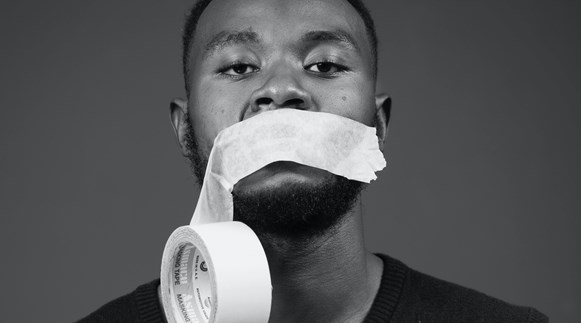In a nutshell
In short, defamation refers to situations where a person or group ruins the reputation of another person or group (whether it’s an individual or a business) by saying something about them. Where this kind of thing crops up in the form of written or published material, it’s known as ‘libel’. Where it’s spoken or broadcasted, it’s ‘slander’. While the two are very closely related, they have slightly different requirements when it comes to proving that what has been said is defamatory. In the public domain, defamation issues can come from almost anywhere, from TV and radio interviews to extracts in an autobiography. Of course, there’s plenty that crops up on social media too (which is probably what you’ll think of first). But private emails and employee references can also land you in hot water, so its scope is broad.
For defamation lawyers, work will crop up across all stages of the process, both before and after the publication of the relevant material. The main regulatory weight behind these kinds of cases here in the UK is the Defamation Act 2013, which sets out the criteria a case has to meet in order to be considered defamation. But the industry as a whole is full of lawyers who work with clients affected by these kinds of issues, specialising in reputation, media and privacy. Typically, the work of defamation lawyers is about balancing free speech with the protection of their client’s reputation.
Legal action over defamation can take time, but lengthy court processes can often be avoided where defamatory statements are either retracted or apologies issued. Where matters are taken to court, successful claims will generally result in compensation.

What lawyers do
- Advise clients on the conditions and limitations of existing legislation to determine the viability of a claim.
- Help clients (whether journalists or in-house lawyers) to identify and manage the risk of complaint and establish possible grounds for technical defences over issues such as public interest.
- Advise clients on remedial action, whether it’s removing defamatory content from platforms or publishing retractions.
- Liaise with service providers and social media platforms to establish where responsibility for removing the relevant material lies.
Realities of the job
- Defamation is highly specialist and very competitive, meaning many defamation lawyers will integrate defamation work into a wider practice involving other areas of civil litigation.
- While the work is interesting and varied, it can be highly time sensitive - most defamation cases must be brought within a year of publication.
- Defamation can have a significant impact on the lives of the people involved, and the legal process can be stressful, with high levels of emotion, so people-skills and a calm, sensitive approach are a must.
- As is the case for most areas of the legal profession, defamation law requires processing and compiling huge amounts of information in a short space of time. So organisational skills and an eye for detail will be essential.
Current issues
October 2023
- The public sphere has been abuzz with high-profile defamation cases in the last few years. A matter that continues to consume the British media is the infamous ‘Wagatha Christie’ libel case brought by Rebekah Vardy against Coleen Rooney. The case revolved around a 2019 social media post where Rooney named Vardy as the source of various stories that were being leaked to tabloid newspapers. Vardy raised a libel claim against Rooney the following June, claiming the posts had defamed her character. The 7-day trial finished with Vardy’s case being dismissed entirely, only fuelling the social media storm that followed.
- The UK government’s latest attempts to crack down on SLAPPs (Strategic Lawsuits Against Public Participation) have been criticised by top editors, writers and lawyers. SLAPPs – attempts to silence or intimidate critics by bringing expensive legal cases against them – are a serious threat to free speech. The governments latest SLAPP bill, it is argued, doesn’t go far enough, and may continue to protect wealthy individuals from investigations.
- Ensuring that claims made in TV programmes and expose documentaries do not breach defamation law is a tricky business. In 2023, Channel 4 broadcasted a programme exposing the comedian Russell Brand for sexual assault allegations spanning his career. The journalists involved claimed to have worked for four years to build up the credibility of the claims made in the documentary to ensure that they didn’t breach in the Defamation Act 2013.
- Another high-profile libel trial came to its conclusion this year. Journalist Carole Cadwalladr had referred to Brexit campaigner Arron Banks as having ‘covert’ relationships with Russian banks during a TED talk in April 2019 (and subsequent social media posts), prompting Banks to accuse her of defamation. While the court ruled in Cadwalladr’s favour in 2022 (on the grounds that Cadwalladr believed the comments were in the public interest) Banks took the case to the Court of Appeal, with the judge deciding that the claims were defamatory, since they could not be supported by the National Crime Agency’s investigation in 2020, and caused ‘serious harm’ to Banks’ reputation. Cadwalladr has now been ordered to pay legal costs of roughly £1.2 million.
- Establishing that comments constitute defamation was already a complicated affair, but the emergence of deepfake technology has made matters worse. Popular celebrities such as Barrack Obama and Emma Watson have been on the receiving end of lifelike recreations that are made to say and do things the real people have never done or said. The recreations can do serious harm to an individuals’ reputation when they are depicted as doing or saying something criminal or controversial, leaving publishers vulnerable to defamation cases.